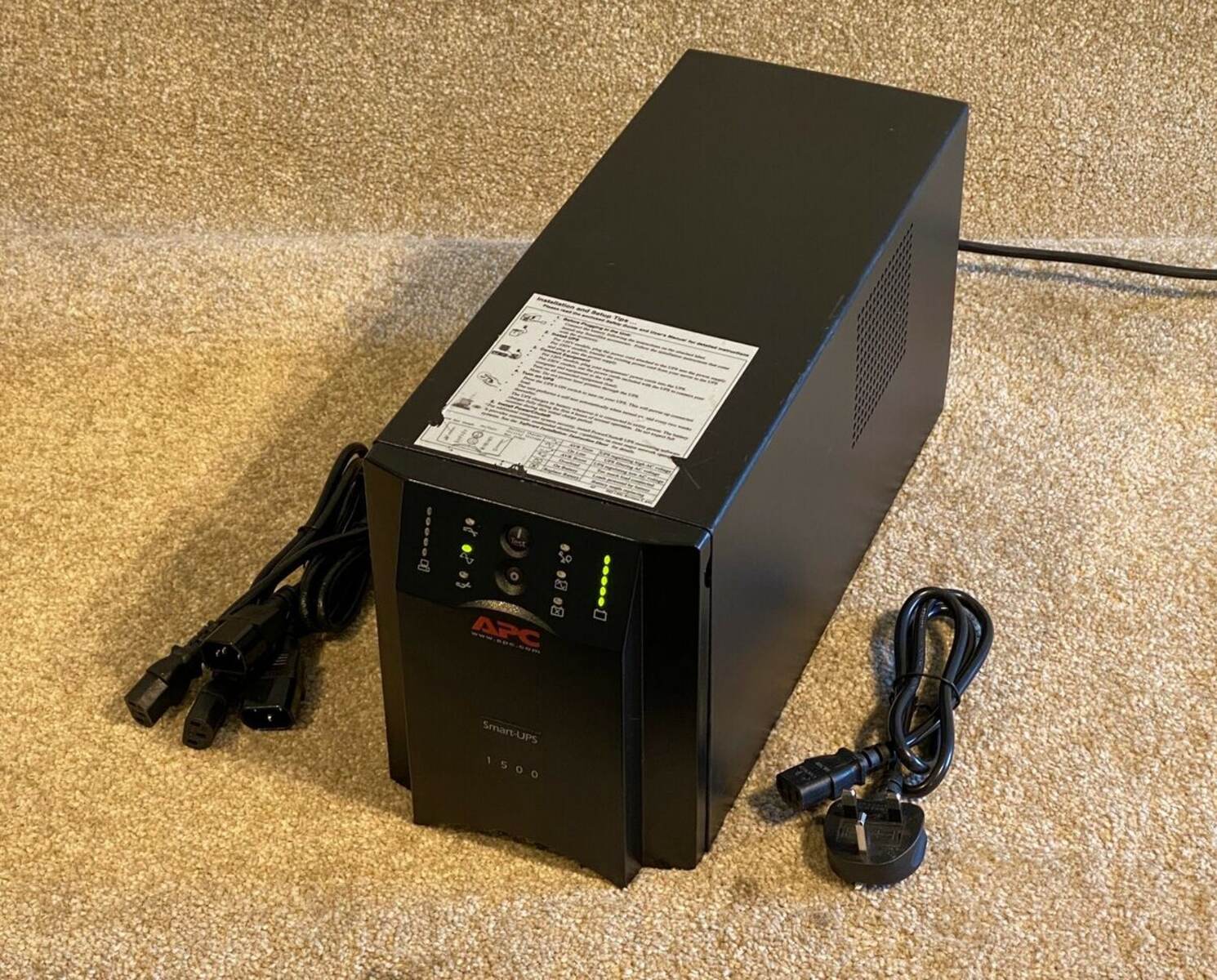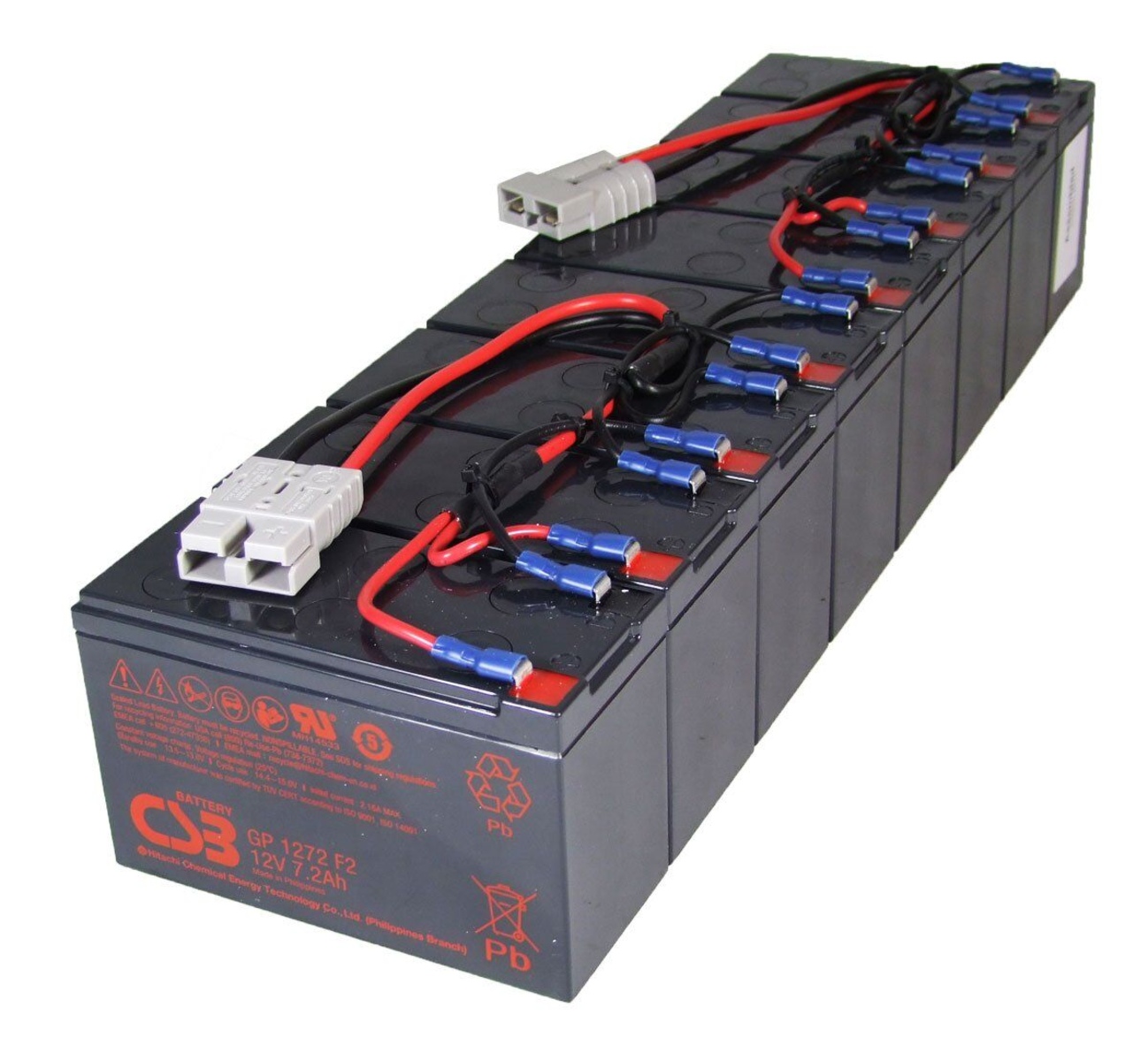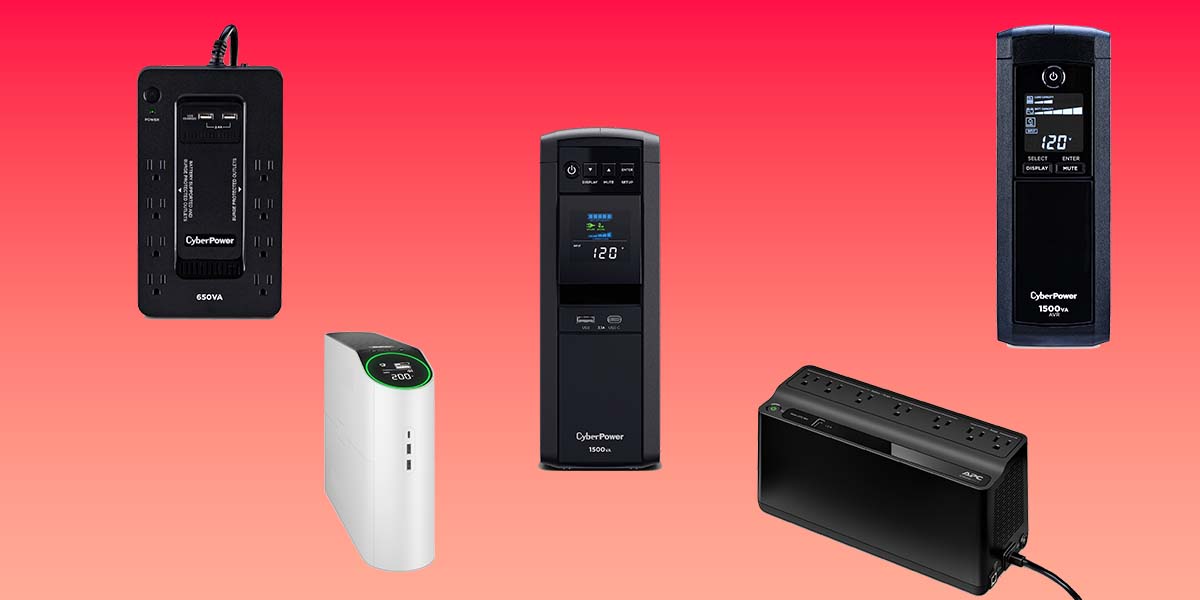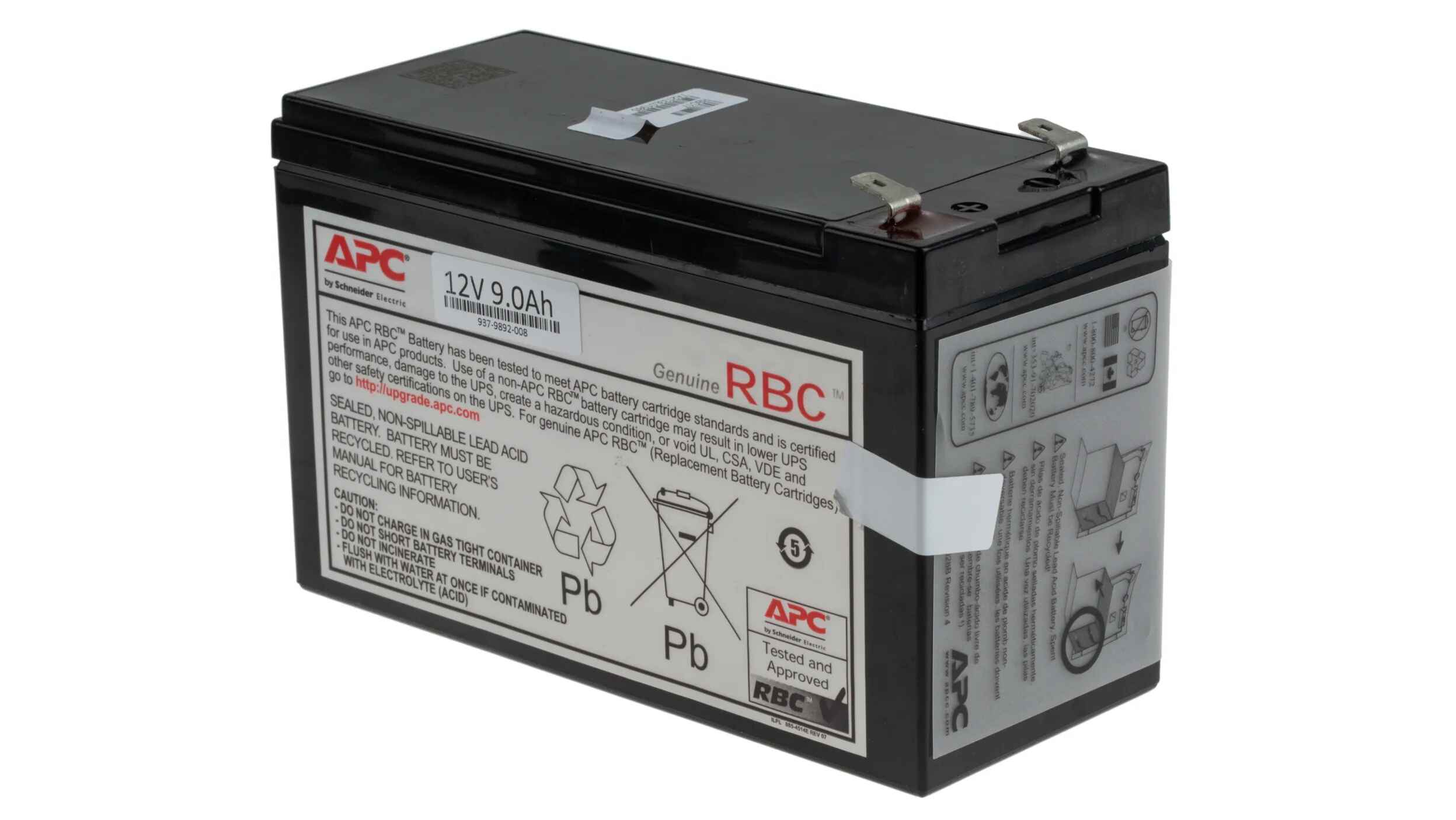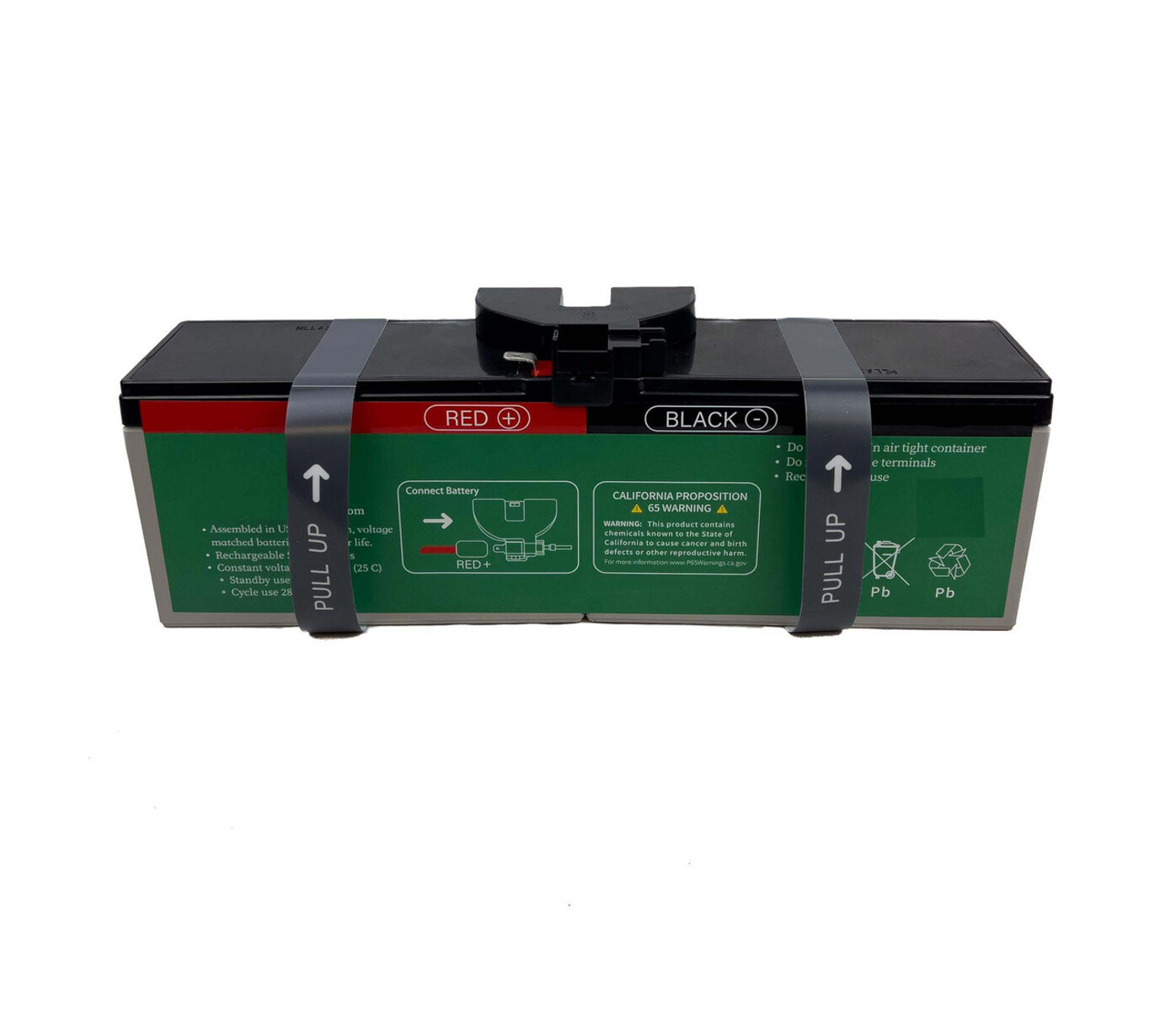Introduction
Welcome to our guide on understanding the voltage of APC UPS batteries. In today’s world, where the demand for reliable power backup solutions is increasing, a UPS (Uninterruptible Power Supply) plays a vital role in protecting your electronic devices and critical systems from power outages and voltage fluctuations.
One of the essential aspects to consider when choosing a UPS battery is its voltage. The voltage rating of a battery determines its compatibility with your equipment and ultimately affects its performance and effectiveness during power disruptions. Understanding the voltage requirements of your devices and selecting the right APC UPS battery voltage is crucial to ensuring seamless power protection.
In this guide, we’ll delve into the intricacies of UPS batteries, the significance of voltage, and specifically focus on APC UPS batteries’ voltage ratings. We’ll explore various voltage options available for APC UPS batteries and provide insights into factors that can impact the voltage of these batteries. By the end of this article, you’ll have a clear understanding of how to choose the right voltage for your APC UPS battery.
So, whether you’re a home user looking to protect your computer and entertainment systems or a business owner in need of safeguarding your critical operations, join us as we unravel the fascinating world of APC UPS battery voltage.
What is a UPS Battery?
A UPS (Uninterruptible Power Supply) battery is an essential component of a UPS system that provides backup power during electrical outages or fluctuations. It acts as a reliable source of power to keep your electronic devices and critical systems running smoothly, even when the main power supply fails.
Unlike standby generators that require time to start and transfer the load, UPS batteries provide instantaneous power backup, ensuring uninterrupted operation of your equipment. They serve as a protective shield against unexpected power disruptions that could lead to data loss, equipment damage, and workflow interruptions.
UPS batteries are typically rechargeable and are designed to deliver power for a specified duration, depending on the load connected to the UPS system. The capacity of a UPS battery is measured in volt-ampere hours (VAh) or ampere hours (Ah) and determines how long the battery can sustain the connected devices without external power.
These batteries come in various forms, such as sealed lead-acid (SLA), lithium-ion (Li-ion), and nickel-cadmium (NiCd). Each type has its own advantages and considerations in terms of cost, efficiency, maintenance requirements, and lifespan.
UPS batteries are commonly used in both residential and commercial settings. In homes, they provide backup power for computers, home entertainment systems, security systems, and other essential electronics. In commercial environments, UPS batteries support critical infrastructure, servers, telecommunications equipment, medical devices, and other sensitive machinery.
Overall, UPS batteries are crucial components that ensure the uninterrupted operation of your equipment and protect against potential damages caused by power disruptions. Choosing the right UPS battery, including considering the appropriate voltage, is essential to meet your specific power backup needs.
Why is voltage important?
Voltage is a critical factor to consider when it comes to UPS batteries. It determines the compatibility of the battery with your equipment and plays a significant role in determining the reliability and performance of the UPS system during power outages or voltage fluctuations.
The voltage rating of a UPS battery represents the electrical potential difference that it can provide to the connected devices. It needs to match the voltage requirements of the equipment to ensure seamless power supply and prevent any damage or malfunctions.
Using a UPS battery with the wrong voltage rating can lead to several issues. If the voltage is too low, the connected devices may not receive enough power to operate correctly, leading to performance issues or even unexpected shutdowns. On the other hand, if the voltage is too high, it can overload the equipment and cause irreparable damage.
Furthermore, the compatibility between the UPS battery voltage and the electrical system is crucial, especially in commercial environments where multiple devices may be connected to a single UPS. Consistency in voltage helps ensure efficient power distribution and protection across the entire network.
The voltage rating of a UPS battery also affects its capacity and runtime. Batteries with higher voltage can generally provide more power and have longer runtimes. However, it’s essential to balance the voltage rating with the load requirements to optimize the battery’s performance and maximize its lifespan.
In addition, different regions and countries have varying standard voltage levels. It’s important to be aware of the local voltage requirements and select a UPS battery that meets those specifications. Using a battery with the wrong voltage can potentially damage your equipment and void warranties.
Overall, voltage plays a crucial role in UPS battery selection. It ensures the compatibility, reliability, and optimal performance of the UPS system and protects your valuable equipment and data from power disruptions.
Understanding APC UPS Batteries
APC (American Power Conversion) is a renowned brand in the UPS industry, known for its high-quality power protection solutions. APC UPS batteries are specifically designed to provide reliable backup power for a wide range of applications, from residential use to critical enterprise environments.
APC UPS batteries are known for their durability, performance, and advanced features. They are available in various sizes, capacities, and voltage ratings to cater to different power backup needs. These batteries are designed to seamlessly integrate with APC UPS systems, ensuring optimal compatibility and efficiency.
One notable feature of APC UPS batteries is their maintenance-free design. They are sealed, which means you don’t have to worry about periodically checking and refilling electrolyte levels. This makes APC UPS batteries convenient and easy to use, requiring minimal maintenance.
Another advantage of APC UPS batteries is their ability to provide clean, reliable power. They incorporate advanced surge protection and voltage regulation technology to filter out fluctuations, harmonics, and other power disturbances, ensuring that your connected devices receive a stable power supply.
APC UPS batteries also provide user-friendly interfaces and management options. Many models come with LCD displays, allowing you to monitor the status of the battery and the UPS system. Some batteries also offer software options for remote monitoring and management, providing convenient control over the UPS system.
When it comes to the environmental impact, APC is committed to sustainability. Their UPS batteries adhere to strict environmental standards and are designed with energy-efficient features to minimize power consumption and reduce carbon footprint.
Overall, APC UPS batteries are designed to offer reliable, efficient, and user-friendly power protection solutions. With their advanced features, multiple voltage options, and compatibility with APC UPS systems, they provide peace of mind for both residential and commercial users.
The Voltage of APC UPS Batteries
The voltage of APC UPS batteries refers to the electrical potential difference that the batteries can provide to connected devices. APC offers a wide range of UPS batteries with different voltage ratings to accommodate various power backup needs.
APC UPS batteries are available in both low voltage (LV) and high voltage (HV) options. The specific voltage rating required depends on your equipment’s voltage requirements and the electrical system you are connecting the UPS to.
For residential and small office applications, APC UPS batteries typically have voltage ratings ranging from 120V to 230V, which are compatible with standard household and small office electrical systems. These batteries are designed to provide backup power for computers, routers, gaming consoles, and other essential electronics.
For larger setups, such as data centers and industrial environments, APC offers UPS batteries with higher voltage ratings. These batteries can range from 208V to 480V and are designed to accommodate the higher power demands of servers, networking equipment, and other critical infrastructure.
It’s important to ensure that the voltage rating of the UPS battery matches the voltage requirements of your connected equipment. Using a battery with the incorrect voltage rating can lead to compatibility issues, performance problems, and potential damage to your devices.
When selecting the voltage of APC UPS batteries, consider factors such as the equipment’s input voltage requirements, the electrical system’s standard voltage, and any specific voltage regulations in your region. Additionally, it’s crucial to consult APC’s documentation and specifications to ensure compatibility and optimal performance.
APC UPS batteries are engineered and tested to deliver the specified voltage consistently and reliably. Whether you need a UPS battery for home use, small business applications, or large-scale industrial setups, APC offers a variety of voltage options to meet your specific power protection needs.
Typical Voltage Ratings
APC UPS batteries are available in a range of voltage ratings to accommodate diverse power backup needs. The specific voltage ratings offered by APC vary depending on the intended application and the electrical systems they are designed to support.
For residential and small office applications, APC UPS batteries typically have voltage ratings between 120V and 230V. These ratings are compatible with standard household and small office electrical systems found in many countries. It’s important to check the voltage of your electrical system to ensure compatibility when selecting an APC UPS battery.
For larger setups such as data centers, commercial buildings, or industrial facilities, APC offers UPS batteries with higher voltage ratings. These batteries can have voltage ratings ranging from 208V to 480V. These higher voltages cater to the higher power demands of servers, networking equipment, and other critical infrastructure.
It’s essential to consider the specific voltage requirements of your connected equipment when selecting an APC UPS battery. Some devices may have specific voltage needs or operate on different voltages. Ensuring that the UPS battery can deliver the required voltage to your equipment is crucial for proper and reliable operation.
Additionally, it’s worth noting that the standard voltage levels may vary depending on the region or country. For example, in North America, the standard household voltage is typically 120V, while in many parts of Europe, it is 230V. Therefore, it’s important to consider the regional voltage standards and select an APC UPS battery that aligns with them.
Overall, APC offers a broad range of UPS battery voltage ratings to cater to various applications and electrical system requirements. Whether you need backup power for your home, small office, or enterprise-level infrastructure, APC has voltage options available to suit your specific needs.
Factors Affecting Voltage
The voltage of APC UPS batteries can be influenced by several factors. These factors can vary depending on the specific UPS model and the characteristics of the electrical system it is connected to. Understanding these factors is crucial in ensuring proper voltage regulation and optimal performance of the UPS battery.
One significant factor that affects voltage is the load connected to the UPS. The load refers to the total power requirements of the devices connected to the UPS battery. As the load increases, the UPS battery needs to deliver a higher voltage to meet the demand. Therefore, it’s important to consider the power requirements of your equipment and select a UPS battery with an appropriate voltage rating to handle the load.
Another factor that can affect voltage is the quality of the electrical input. In areas with unstable or fluctuating power supply, the voltage may vary beyond the normal acceptable range. This fluctuation can impact the output voltage of the UPS battery. To mitigate this, APC UPS systems often incorporate voltage regulation technology to maintain a stable output voltage despite the fluctuations in the input power.
The capacity or size of the UPS battery can also impact the voltage. Larger capacity batteries may require higher charging voltages to maintain their performance and deliver the necessary power to connected devices. It’s important to consider the battery capacity in relation to the voltage ratings when selecting an APC UPS battery.
Environmental conditions can also affect the voltage of UPS batteries. Temperature, for example, can impact the battery’s performance and voltage output. Extreme temperatures, both high and low, can cause changes in the battery’s internal resistance, which can affect the voltage regulation. It’s crucial to operate and store APC UPS batteries within the specified temperature range to maintain optimal voltage output.
Lastly, the age and condition of the UPS battery can influence the voltage. Over time, batteries undergo natural degradation, which can impact their voltage output. It’s important to monitor the health of the UPS battery and replace it when necessary to ensure consistent and reliable voltage regulation.
Considering these factors and their potential impact on voltage can help you choose the right APC UPS battery and maintain its optimal performance. Proper load management, voltage regulation technology, battery capacity, environmental considerations, and regular maintenance are all essential in ensuring stable and reliable voltage output from the UPS battery.
Choosing the Right APC UPS Battery Voltage
Choosing the right APC UPS battery voltage is crucial to ensure compatibility with your equipment and to provide effective power backup during outages or fluctuations. Here are some key considerations to help you select the appropriate APC UPS battery voltage:
1. Equipment Requirements: Determine the voltage requirements of your connected equipment. Check the specifications or labels on your devices or consult the manufacturer’s documentation to identify the required voltage. Ensure that the UPS battery’s voltage rating matches or is compatible with the equipment’s voltage needs.
2. Electrical System Compatibility: Consider the electrical system in which the UPS battery will be installed. Check the standard voltage level in your region or the specific voltage of your electrical system. Ensure that the UPS battery’s voltage rating aligns with the standard or falls within the acceptable range of your electrical system.
3. Future Expansion: If you anticipate adding more equipment to your setup, consider the future power requirements. Select a UPS battery with a higher voltage capacity to accommodate any potential expansion without the need to upgrade the battery later on.
4. Load Calculation: Calculate the total power requirements (load) of your connected devices. Consider both the current load and any potential increase in the future. Ensure that the selected UPS battery voltage can handle the calculated load without overload or underpowering.
5. Voltage Regulation: Evaluate the voltage regulation capabilities of the UPS system. Look for features such as automatic voltage regulation (AVR) that can stabilize the output voltage even in the presence of input power fluctuations. This helps ensure consistent and reliable power supply to your equipment.
6. Consult APC Documentation: Review the product specifications, user manuals, and documentation provided by APC. These resources often provide detailed information about the recommended voltage ratings for specific UPS models and guidance on selecting the right UPS battery voltage.
By considering these factors and guidelines, you can choose the right APC UPS battery voltage that meets the requirements of your equipment and provides reliable power backup. If you have any doubts or need further assistance, consult with an APC representative or a qualified professional to ensure the best results.
Conclusion
Understanding the voltage of APC UPS batteries is essential for selecting the right power backup solution for your needs. The voltage rating determines the compatibility, reliability, and performance of the UPS battery, ensuring seamless power supply during outages or voltage fluctuations.
APC UPS batteries offer a wide range of voltage options to cater to various applications and electrical system requirements. Whether you need backup power for your home, small office, or large-scale enterprise infrastructure, APC has a UPS battery with the appropriate voltage rating.
When selecting an APC UPS battery, consider factors such as equipment requirements, electrical system compatibility, future expansion needs, load calculations, and voltage regulation capabilities. These considerations will ensure that you choose a UPS battery with the right voltage to meet your specific power backup requirements.
APC UPS batteries provide reliable, durable, and user-friendly power protection solutions. They incorporate advanced features, such as maintenance-free design, surge protection, voltage regulation, and energy-efficient operation, to ensure the smooth operation of your connected devices.
By selecting the right APC UPS battery voltage and following the manufacturer’s guidelines and best practices, you can have peace of mind knowing that your critical equipment and data are protected from power disruptions.
Whether you’re a home user, a small business owner, or managing a large-scale organization, investing in APC UPS batteries with the appropriate voltage will provide you with reliable power backup and safeguard your valuable assets.
Make an informed decision and partner with APC to ensure reliable power backup and protection for your electronic devices and critical systems.











